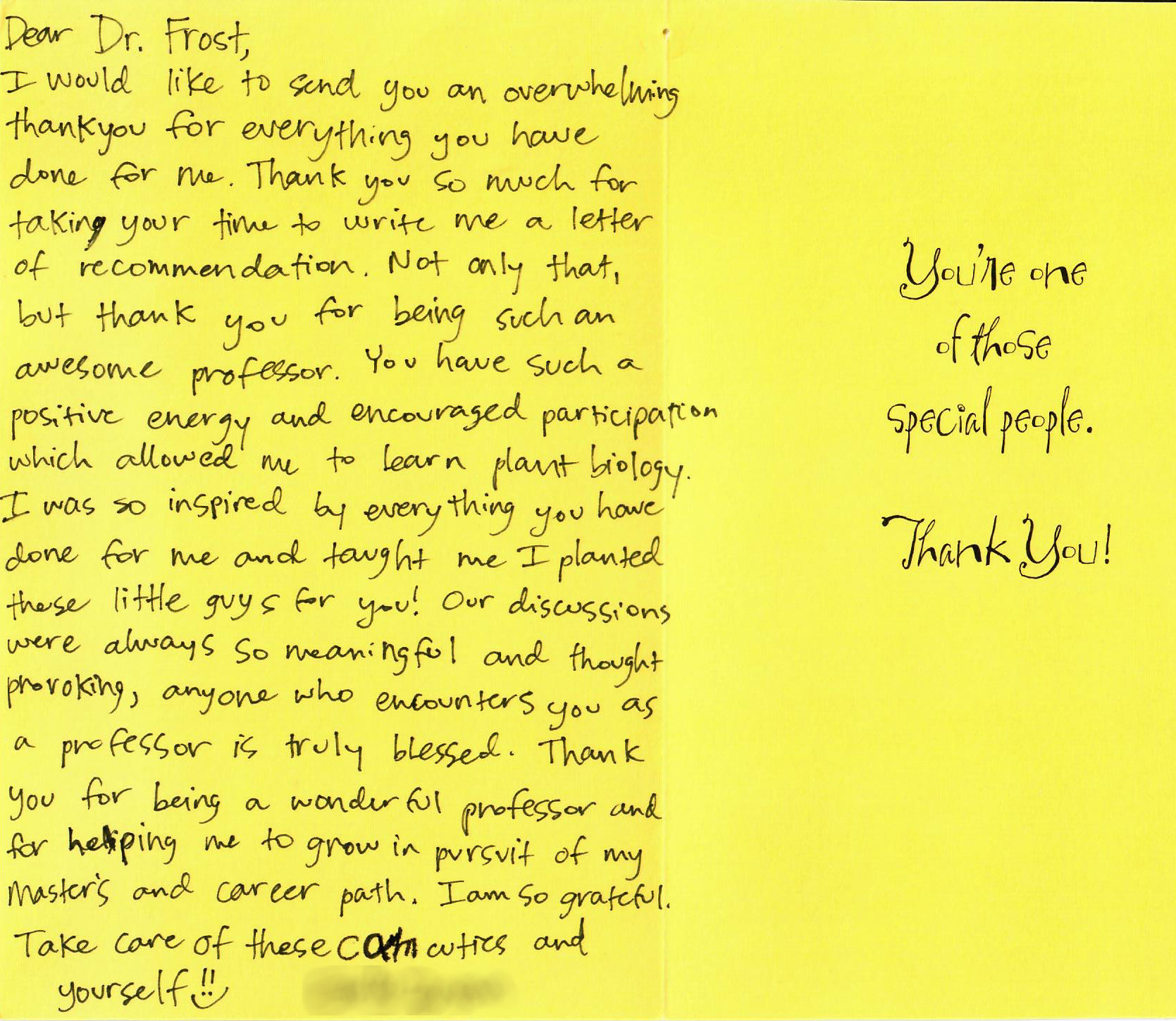The Frost Laboratory: Plant Integrative Biology and Chemical Ecology
Chemical Ecology (Bio 435/635)
Course Description
This course explores the remarkable world of chemical ecology, where ecological outcomes between or among individuals are influenced or determined directly or indirectly by chemicals produced by individuals. Such chemicals can provide ecological information to other members of the same species or to a different species, and affect both natural and sexual selection. We will use an interactive discussion/seminar-style to interrogate the primary literature for current knowledge of how chemical cues influence a diverse array of ecological interactions, from the African savannas to galling insects in our own backyard. This course will focus on plant chemical ecology, though we will also explore chemical ecology in animals, including humans. Students will have flexibility to choose their own research topics to pursue focused critical thinking and hypothesis generation. Discussions will span a range of disciplines including genetics, molecular biology, biochemistry, natural products, ecology, and evolution. As such, this course is intended for students who have some prior knowledge of ecology and/or biochemistry.
Learning Objectives
1. Students will learn terminology and concepts common to the field of chemical ecology. Chemical ecology is a diverse discipline encompassing concepts from genetics, molecular biology, biochemistry, ecology, and evolution.
2. Students will be able to critically deconstruct a scientific, peer-reviewed manuscript. They will be able to analyze the concepts, hypotheses, and data presented in a manuscript, and discuss the manuscript.
3. Students will be able to synthesize literature on a topic relevant to chemical ecology of their choosing, develop a tersely written summary of the literature that includes an hypothesis and experimental design.
This course explores the remarkable world of chemical ecology, where ecological outcomes between or among individuals are influenced or determined directly or indirectly by chemicals produced by individuals. Such chemicals can provide ecological information to other members of the same species or to a different species, and affect both natural and sexual selection. We will use an interactive discussion/seminar-style to interrogate the primary literature for current knowledge of how chemical cues influence a diverse array of ecological interactions, from the African savannas to galling insects in our own backyard. This course will focus on plant chemical ecology, though we will also explore chemical ecology in animals, including humans. Students will have flexibility to choose their own research topics to pursue focused critical thinking and hypothesis generation. Discussions will span a range of disciplines including genetics, molecular biology, biochemistry, natural products, ecology, and evolution. As such, this course is intended for students who have some prior knowledge of ecology and/or biochemistry.
Learning Objectives
1. Students will learn terminology and concepts common to the field of chemical ecology. Chemical ecology is a diverse discipline encompassing concepts from genetics, molecular biology, biochemistry, ecology, and evolution.
2. Students will be able to critically deconstruct a scientific, peer-reviewed manuscript. They will be able to analyze the concepts, hypotheses, and data presented in a manuscript, and discuss the manuscript.
3. Students will be able to synthesize literature on a topic relevant to chemical ecology of their choosing, develop a tersely written summary of the literature that includes an hypothesis and experimental design.


